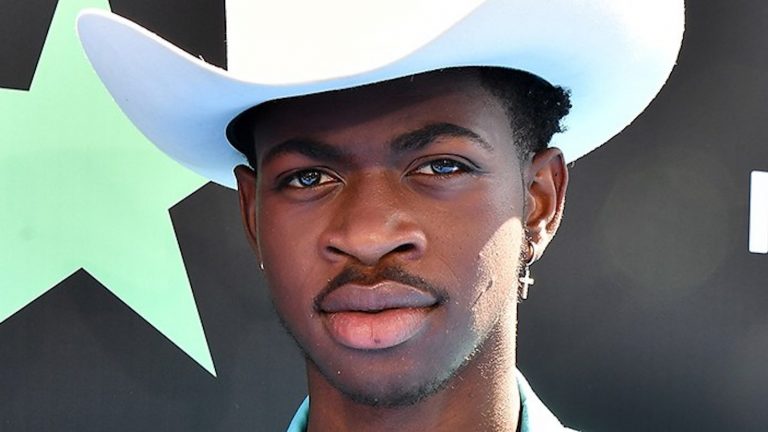These days, a few dollars and an ounce of courage can forge stars. At least, that’s true in the case of rapper Lil Nas X. On Tuesday, CBS News’ Gayle King interviewed Lil Nas X to reflect on his wild ride from a $20 recording session to stardom, as his hit song “Old Town Road,” featuring Billy Ray Cyrus—with its tongue-in-cheek lyrics and blatant oddity—and his personal brand have left an indelible impact on the music industry. Indeed, “Old Town Road” was the first song to remain at the top spot on the Billboard charts for a record-breaking 19 consecutive weeks. And Nas has used his fame to share his personal experience with his sexuality, telling King “We still have a long way to go.” His public image as a rainbow-colored cowboy radiates through even the darkest closets, inspiring millions of people to be themselves.
The whole ordeal is a phenomenon of sorts in the first place. Lil Nas X’s sound is a backdoor appeal to a musical audience that has subsisted largely, of late, on confectionary pop à la Ariana Grande and Taylor Swift, or on straightforward, familiar beats from rap heavies like Drake and Kendrick Lamar. But somehow, a gay African-American newcomer with a goofball sense of humor and a cowboy hat has managed to outpace them all. Of course, for that, he can thank the free market.
If you were to buy into the identity politics narrative that has run amok in modern conversation, you’d probably be more shocked than anyone by Lil Nas X’s triumph.
Indeed, the narrative would have you believe a gay black man is the most oppressed in society. As a gay black man myself, it’s something of which I’m often reminded. But, as it turns out, that doesn’t always have to be the case.
In fact, Lil Nas X is a living testament to capitalism’s capability to unshackle even the most (supposedly) heavily-chained. It’s a societal structure that can liberate us from the false doctrine of identity. Before Lil Nas X publicly came out, he was simply Lil Nas X the rapper. But he spent a good while building a strong social media following, tweeting clever jokes and gaining hundreds of thousands of followers with his relatability and talent. When he did come out, the world cheered. He became the subject of think pieces and profiles. As Teen Vogue proclaimed, “Lil Nas X has forever changed hip-hop.”
That’s because, in a free market society, brand is king—and millions liked Nas’s brand. The product he was selling was too irresistible to pass up.
His entrepreneurial mentality isn’t unprecedented, by any means. Long has the free market been a platform that highly successful minorities have used to stake their claim on societal respect and success. When circumstances were stacked against them, debonair politicians like Maynard Jackson charmed the public and got elected mayor. Inventor George Washington Carver, pioneering scholar Carter G. Woodson, poet Langston Hughes, and millionaire Annie Malone—all African-Americans subjected to institutional violence—forged ahead with what they had to offer. Quirky gay black men like James Baldwin found acclaim and singer Frank Ocean found a space in the music market.
Through ingenuity and looking to the demand of the market, they found a way to craft change. They claimed a niche, built their brand, and were rewarded with the loyalty of millions of “customers.” Now Nas takes his place among them—not because of his identity, but rather his knack for rhetoric, advertising, networking, and acknowledgment of the market’s demands.
Those are a few of the minority standouts of history. But everyday people took advantage of the capitalist scheme, too.
In the Greenwood district of Tulsa, Oklahoma, minority entrepreneurs channeled the energy of the free market to produce one of the most prosperous communities in the nation. The little town, established by freed slaves through smart buying and selling of land, curated around 200 businesses such as hotels and an early-model taxi service. The wealth they amassed was enormous: six of the town’s black families owned all of the planes in Oklahoma’s airports. In fact, the town did so well that it was dubbed the “Black Wall Street.” Of course, their world hated them. In the 1920s, their town was set ablaze by racist arsonists.
But they refused to take a seat. And, in that, there’s a lesson to be learned. It’s one, too, that Lil Nas X has evidently taken to heart: in America, your circumstances don’t have to define your chances. If a former slave colony in the early 1900s can prosper without the internet, cell phones, or friends in broader society, then why can’t everyone in America? Why can’t a black man who is fascinated by the peanut’s complexity? Why can’t black gay rappers with a thing for subverting the country music genre? Why can’t you? As it turns out, we all can, no matter the odds.
To that—can I get a “yeehaw”?














Add comment